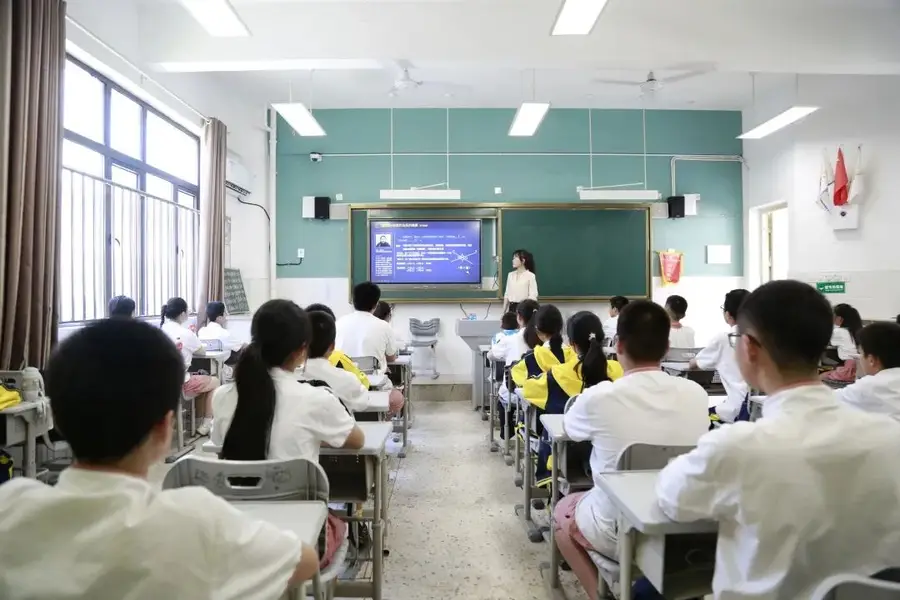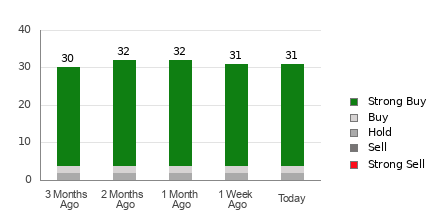
Ruanyun’s IPO Surge Highlights Opportunities and Challenges in EdTech
The company’s AI-based homework and testing apps have attracted 15.1 million users, but its stock appears expensive after a strong post-IPO rally.
Key Takeaways
- Ruanyun’s shares soared 80% in their first week of trading, following a $15 million Nasdaq IPO.
- The edtech firm may face market saturation in Jiangxi province and will need national expansion to sustain growth.
After facing a severe regulatory crackdown that left many Chinese edtech companies struggling, the sector is seeing a resurgence. While some companies pivoted to adult education, others are benefiting from the increased demand for AI technology in schools, backed by government support.
Last December, China’s education minister described AI as the “golden key” for educational advancements. Squirrel AI, a leader in AI-driven education, raised $180 million and opened 2,000 learning centers nationwide, forecasting the same growth in the future. Its success has catapulted its valuation above $1 billion, marking its entry into the edtech “unicorn” club.
A smaller entity in the emerging AI edtech landscape is Ruanyun Edai Technology Inc. (RYET.US), which experienced an impressive 80% rise in stock prices within a week of its April 8 IPO on Nasdaq, raising $15 million. The stock has retained most of its gains despite fluctuations in the market, closing about 50% above its $4 listing price as of Wednesday.
Even with a strong market debut, Ruanyun presents certain investment risks. The company reports negative cash flow and relies on just two major customers, a decline from three. Additionally, its revenue has sharply fallen in the last reporting period, necessitating the IPO funds to manage ongoing losses while pursuing sustainable growth.
Ruanyun primarily targets primary and secondary school students (K-12), which were significantly impacted by the Ministry of Education’s crackdown on for-profit after-school tutoring in 2021. While private companies are prohibited from offering these services directly, they can provide products and services to schools and government institutions—an avenue Ruanyun is exploiting.
Based in Jiangxi, an economically modest province comparable to Norway, the company was co-founded by Fu Yan and Zhao Cong, both alumni of Indiana University with past experience at the now-defunct New York adtech firm, IgnitionOne. Founded in 2012, Ruanyun launched into AI databases and paperless testing in 2017, later adding customized homework books in 2020.
The company’s latest financial performance has raised some concerns. Its revenue was stable through March 2024 but plummeted 35% in the first half of that fiscal year, dropping to 4.1 million yuan ($561,000) compared to 6.3 million yuan the previous year, citing a shift in marketing strategy.
Meanwhile, Ruanyun’s net loss for the fiscal year ending March 2024 expanded but improved to 680,000 yuan in the first half of the fiscal year, down from 1.5 million yuan a year prior.
Ruanyun’s primary offerings include the SmartHomework system and the SmartExam platform. The SmartHomework system utilizes a database of 10 billion data points sourced from 15.1 million students across 16,700 schools, 80% of which are in Jiangxi. The targeted market for personalized homework literature was valued at approximately 80 billion yuan in 2022, based on internal estimates.
Transitioning to Institutional Sales
Following the tutoring ban, Ruanyun altered its sales strategy to target schools and authorized institutions rather than students, supplying essential products like AI learning centers, tablets, and printers to these larger buyers.
The SmartExam platform encompasses all subjects involved in the gaokao—the national college entrance exam—while the company also develops test materials and technology to prevent cheating through computerized assessments and facial recognition systems.
Despite a favorable market position, Ruanyun’s performance has been inconsistent, affecting its revenue growth. Between 2020 and March 2024, the company built nine testing centers in Nanchang, Jiangxi’s capital, and 58 more sites. However, only one new site has been completed since 2022.
In the most recent half-year ending March 2024, two customers generated 70% of total revenue, a decrease from three customers accounting for 80% prior. This highlights Ruanyun’s dependence on a narrow customer base, which poses risks for revenue stability.
In December 2020, Jiangxi Xinhua Distribution Group Co. Ltd established a strategic partnership with Ruanyun, offering standard subscriptions for personalized exercise books. Nonetheless, the number of paying users fell from 26,900 in March 2023 to 20,200 by March 2024, despite an increase in registered users from 14.3 million to 15.1 million, bolstering the company’s data resources.
More than half of Ruanyun’s revenue for the fiscal year through March 2024 originated from digitization services, with payments from publishers growing from $4.5 million in 2023 to $5.2 million in the following year.
The revenue from the SmartHomework platform surged 137%, hitting $3.1 million for the fiscal year through March 2024, up from $1.8 million previously, partly due to expansion efforts beyond Jiangxi as noted in the company’s prospectus.
While the legitimacy of Ruanyun as an AI provider may be under question, its regional strengths could assist in expanding its presence outside Jiangxi. Its deep ties within the provincial education system offer a competitive advantage.
However, competitors like Squirrel AI and K-12 tutoring platform Zuoyebang Education Technology, backed by Tencent, are eyeing the same market opportunities in the wake of regulatory changes. Established players such as New Oriental Education (EDU.US; 9901.HK) and TAL Education (TAL.US) are also advancing with AI capabilities to harness similar customer segments.
As Ruanyun’s post-IPO stock performance raises concerns, it currently holds an elevated price-to-sales (P/S) ratio of 33.8, contrasting sharply with TAL’s ratio of 2.92 and New Oriental’s 1.57. This valuation disparity could imply a short-lived rally unless Ruanyun effectively boosts its revenue to align its P/S ratio closer to larger industry counterparts.
© 2025 Benzinga.com. Benzinga does not provide investment advice. All rights reserved.


